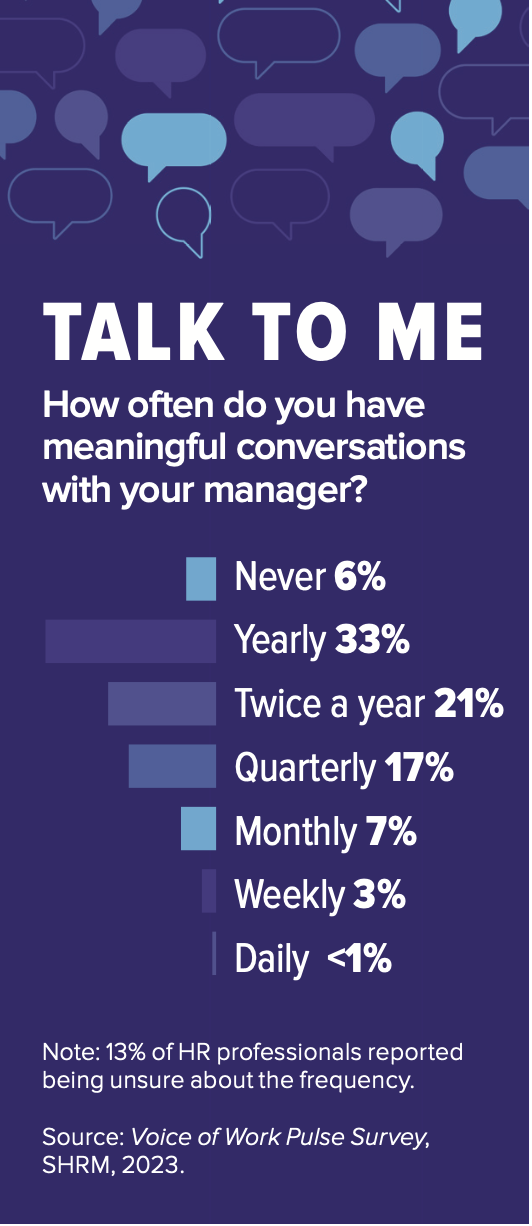Empowering Employees Through Career Development Strategies
Fostering career growth and development in the workplace is imperative. But establishing advancement pathways for employees isn’t always straightforward.

The innate desire to learn and grow is fundamental to human nature, manifesting itself within the workplace and in our personal lives. You are where you are today because of this desire. From learning to walk, talk and read to excelling in your career, each milestone stands as a testament to the power of your drive for growth and development.
Growing professionally is also critical to our well-being. According to SHRM’s 2023 State of Mental Health and Well-Being in the Workplace research, having opportunities for growth within the workplace is the foremost driver of employees’ mental well-being at work, surpassing other workplace factors such as safety, job security, flexibility, autonomy, social support and recognition.
Therefore, fostering employee growth and development is a strategic imperative for employers seeking to attract, retain and empower top talent. And one key approach is through career advancement opportunities.
We might hope that company leaders could effortlessly extend their future-oriented mindset to their workforce. But in SHRM’s 2023-2024 State of the Workplace Report, both HR executives and HR professionals identified a lack of clear career advancement pathways as a major talent acquisition challenge for their organizations. This challenge also extends to talent retention.

In response to SHRM’s November 2023 Voice of Work Pulse Survey, 49 percent of HR professionals reported that insufficient career advancement opportunities were a factor in at least some employees’ decisions to leave their organization in 2023. SHRM’s 2023 State of Global Workplace Culture report revealed that when high-performing employees were asked their reason for seeking new employment, 41 percent cited insufficient career growth opportunities.
It’s easy to accept a lack of such opportunities as “just the way things are”—an inevitable part of an organization’s structure. But it’s important to change this mindset. For some employees, climbing the promotion ladder is less important than personal growth. They seek to understand the path ahead, determine next steps, and they want to feel that their manager is genuinely invested in their career—whether within their current role or beyond.
However, according to recent SHRM research, only 57 percent of organizations lay out career paths for employees, and in only 10 percent of organizations do managers have career conversations with their employees at least monthly.
Both of these practices are critical for engagement and retention. SHRM research indicates that when managers hold meaningful career discussions with employees at least once a month, worker engagement levels are higher (55 percent) than when they do so twice a year (42 percent), yearly (29 percent) or never (19 percent).
What’s more, 47 percent of organizations with established career paths report “lower or much lower” voluntary turnover than organizations of similar size and industry, while only 37 percent of organizations that lack career paths report the same. When organizations provide the sense of progress that employees crave, everyone wins.
Ragan Decker, Ph.D., is an industrial-organizational psychologist and manager of Executive Network/Enterprise Solutions research at SHRM.


